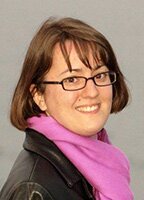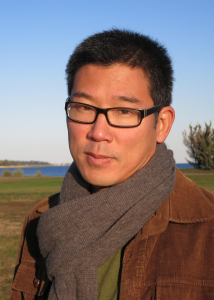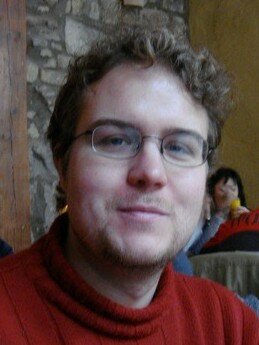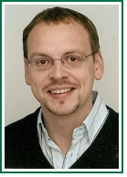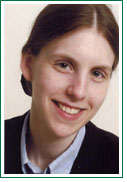William M. Calder III Fellows
2014: Claas Lattman, Ph.D, Department of Classics, Emory University
2014: Christelle Fischer-Bovet, Ph.D, Assistant Professor, University of Southern California
2014: Khodadad Rezakhani, Ph.D, Freie Universitat Berlin
2013: Claas Lattman, Ph.D, Department of Classics, Emory University
2013: Therese Cory, Ph.D, Assistant Professor of Philosophy, Seattle University
2013: Lawrence Kim, Ph.D, Assistant Professor, Trinity University
2012: Jan Felix Gaertner, Ph.D., Lecturer on the Classics, Harvard University
2010: Nicolas Wiater, Ph.D., Lecturer, School of Classics, University of Saint Andrews
Vasileios Marinis is Associate Professor of Christian Art and Architecture at the Institute of Sacred Music and the Divinity School, Yale University. Professor Marinis has been the recipient of numerous grants and fellowships including the Aidan Kavanagh Prize for Outstanding Scholarship at Yale, a fellowship at Dumbarton Oaks in Washington, D.C., the S.C. and P.C. Coleman Senior Fellowship at the Metropolitan Museum of Art, and a membership at the Institute for Advanced Study in Princeton. Professor Marinis has published on a variety of topics ranging from early Christian tunics decorated with New Testament scenes to medieval tombs, graffiti, and Byzantine transvestite nuns. His monograph on the interchange of architecture and ritual in the medieval churches of Constantinople was published by Cambridge University Press in 2014. Before coming to Yale he was the first holder of the Kallinikeion Chair of Byzantine Art at Queens College, CUNY.
Dr. Christelle Fischer-Bovet (2014)
Christelle Fischer-Bovet is an assistant professor of Classics at the University of Southern California and specializes in the social and cultural history of the Eastern Mediterranean from Alexander the Great to the Romans, with a special interest in Greco-Roman Egypt. Her book Army and Society in Ptolemaic Egypt (Cambridge University Press, 2014) combines documentary evidence (papyri, inscriptions) with social theory to examine how the changing structures of the army led to the development of an ethnically more integrated society. She has also written several articles on Ptolemaic history and (forthcoming) articles on the role of ethnicity in the institutions of the new Hellenistic states, on legal and fiscal categories used by the Ptolemies and the Romans in Egypt and on social unrest and ethnic coexistence in the Ptolemaic and Seleucid states, the latter to be published in Past and Present. She is currently co-writing with the numismatist Cathy Lorber an article on wages and monetization in Hellenistic Egypt.
Between 2015 and 2017, Dr. Fischer-Bovet will be hosted three times by Prof. Sitta Von Reden at the Universität Freiburg-im-Breisgau, to work on a book titled The Ptolemaic Empire for Oxford University Press and to co-organize with her host an international conference called Comparing the Ptolemaic and Seleucid empires, the role of the local elites. Her book project aims at developing a better understanding of state formation and imperialism in Egypt after the conquest of Alexander down to the inclusion of Egypt into the Roman Empire (332-30 BCE). It provides a critical narrative of the Ptolemaic empire based on Greek and Egyptian papyri and inscriptions as well as archaeological material, coins and ancient Greek authors. At the same time the study uses the evidence to evaluate different theories of empire. This book proposes that the resilience of state institutions (political, economic, and military) and above all of state ideology that were borrowed, developed and adapted by the Ptolemies, explain the long-lasting and success of their state, and that it was possible through the incorporation of the local elites. This approach offers a new framework for understanding Ptolemaic Egypt and social integration in multicultural states and for rethinking the phenomena of state expansion, stability and decay.
Dr. Claas Lattmann (2013, 2014)
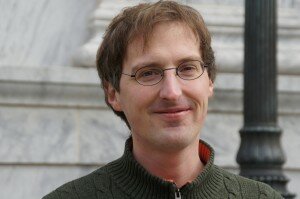
American Friends of the Alexander von Humboldt Foundation awarded a 2013 William M. Calder III Fellowship for Classical Studies to Dr. Claas Lattmann.
Claas Lattmann studied Greek Philology, Phonetics and Digital Speech Processing, and Computer Science in Kiel where he obtained his MA in 2004. In 2008, after having additionally studied Latin Philology, he received his PhD. His main areas of scholarly interest are ancient Greek poetry and ancient philosophy and science. His thesis “Das Gleiche im Verschiedenen. Metapher des Sports und Lob des Siegers in Pindars Epinikien” (De Gruyter, 2010) analyzes Pindar’s odes of praise for victors at ancient sports games from a semiotic perspective and puts forward a new interpretation of these cryptic and ever since antiquity controversially discussed songs. Apart from that, he has published several articles, in particular on ancient drama, ancient literary criticism and contemporary metaphor theory. Since 2005, Lattmann has been working at the Department of Classics at the University of Kiel.
From August 2013 until July 2015, Lattmann will stay at the Department of Classics at Emory University as a Feodor Lynen Fellow; his academic host will be Professor Peter Bing. Lattmann will finish his second book, a study that will provide new insights into Plato’s epistemology and the dark history of pre-Euclidean mathematics by scrutinizing Plato’s use and theory of mathematical models. Strongly interdisciplinary in approach, this project intertwines philology, ancient philosophy, history of science, and philosophy of science. Lattmann has already made a contribution to a better philosophical understanding of models by co-publishing several articles that put forward a new model theoretic approach.
American Friends of the Alexander von Humboldt Foundation awarded a 2013 William M. Calder III Fellowship for Classical Studies to Dr. Cory Therese.
Therese Scarpelli Cory’s research focuses on medieval theories of cognition, with special interest in how thirteenth-century thinkers like Thomas Aquinas developed unique approaches to the human mind by integrating Greek, Latin, and Islamic sources. She studied philosophy at the School of Philosophy in the Catholic University of America in Washington, DC, earning her MA in 2007 and her PhD in 2009. From 2009-2010, she was a postdoctoral research fellow at Georgetown University’s Martin Center for Medieval Philosophy in Washington, DC. Since 2010, she has been an assistant professor of philosophy at Seattle University. She is particularly interested in tracing the influence of Arabic thought on cognition theory in Aquinas and his predecessors, and is an active member of the “Aquinas and ‘the Arabs’ International Working Group.” Dr. Cory’s book Aquinas on Human Self-Knowledge was published by Cambridge University Press, 2013. Her paper “Diachronically Unified Consciousness in Augustine and Aquinas” was awarded the 2011 Founder’s Prize from the Society for Medieval and Renaissance Philosophy, and was subsequently published in Vivarium (2012). She has also published articles on Bonaventure’s epistemology, as well as on the relationship between intellect and imagination in Aquinas and two of his key Islamic sources.
Dr. Cory will be hosted by Prof. Dag Nikolaus Hasse at the Universität Würzburg, to work on a book provisionally titled “To Know Is to Be: Aquinas’s Metaphysics of Intellectual Being.” This book will examine Thomas Aquinas’s theory of what it means to be a mind or intellect. It will argue that unlike later thinkers, Aquinas does not conceive of the intellect as a “container” for intelligible being. Rather, he follows an ancient tradition rooted in Neoplatonic/Proclean and Aristotelian thought (much of which was transmitted to the Latin West via Arabic texts) according to which the intellect is identical with intelligible being. In other words, the intellect’s very being is constituted by what it knows; to be an intellect-thinking-about-justice is to be intelligible justice, i.e., justice existing in an intellectual, intelligible mode of being. In explaining what such a theory means for the intellect, this study will show that Aquinas’s metaphysics of intellectual being provides tools for addressing some persistent criticisms of his theory of human knowledge.
Lawrence Kim received a B.A. in Ancient Greek and Latin at Brown University and a Ph.D. in Classics from Princeton University. He has taught at the University of Washington, Seattle and the University of Texas at Austin, and is currently Assistant Professor of Classical Studies at Trinity University in San Antonio, Texas.
His scholarly research focuses on the so-called ‘Second Sophistic’, or the renaissance of Greek culture under the High Roman Empire (ca. 50-250 CE), with interests in narrative fiction, literary criticism, style, nostalgia, and the reception of classical literature. Recent publications include studies on time in the ancient novel, orality and popular narrative, Plutarch and historical fiction, Dio of Prusa’s rhetorical style, and Imperial Atticism. His book, Homer between History and Fiction in Imperial Greek Literature (Cambridge, 2010), which was awarded the 2011 Charles J. Goodwin Award of Merit from the American Philological Association, examines four very different responses to the question of whether or not Homer told the ‘truth’ about the Trojan War: Strabo’s Geography, Dio of Prusa’s Trojan Oration, Lucian’s novella True Stories, and Philostratus’ fictional dialogue On Heroes.
His project for the Humboldt Fellowship for Experienced Researchers (2013-14, under the auspices of Prof. Dr. Jonas Grethlein in the Seminar für Klassische Philologie at the Universität Heidelberg) is a study of anti-classicizing elements (with a special focus on the idea of the ‘archaic’) in Imperial Greek thought. Current research along these lines includes studies of the term arkhaios in the rhetorical works of Dionysius of Halicarnassus and of the vision of the ‘archaic’ period in Plutarch’s On the Delphic Oracles, as well as a more general investigation into the phenomenon of Second Sophistic ‘Asianism’.
American Friendsof the Alexander von Humboldt Foundation awarded a 2012 William M. Calder III Fellowship for Classical Studies to Dr. Emily Baragwanath.
Emily Baragwanath completed her M.A. (2001) in Ancient History at the University of Auckland, New Zealand, before taking up a Rhodes Scholarship to Oxford (DPhil in Classics, 2005). Her main area of scholarly interest is the literary techniques employed by Greek historians in their construction of historical narratives. Her book Motivation and Narrative in Herodotus (Oxford University Press, 2008), winner of Oxford’s Conington Prize and the CAMWS Award for Outstanding Publication 2010, explores the representation of human motivation in Herodotus’ Histories. The Greek historians’ use of mythology as a mode of narrative and explanation alongside the historical mode, and the relationship between the historians and their poetic predecessors, are topics central to a volume she has co-edited on Myth, Truth, and Narrative in Herodotus (Oxford University Press, 2012). Other recent projects have addressed Aeschylus and history, intertextuality in Greek historiography, and virtual history in Herodotus.
The William M. Calder III fellowship will support her extended stay at Heidelberg University as an Humboldt Research Fellow (March 2013 – June 2014), hosted by Professor Jonas Grethlein, to work on a book-length study of the fourth-century BC Athenian author Xenophon. Provisionally entitled Women, Narrative, and Agency in Xenophon, this study will examine Xenophon’s representation of women and how it relates to larger issues of friendship and leadership, at the same time as it investigates broader questions about Xenophon’s approach to history, narrative, explanation and literary invention. She hopes that such a cross-genre study will enable us to capture a better sense of Xenophon’s character as an author and historian, and of the nature and significance of his literary achievement.
Dr. Jan Felix Gaertner (2012)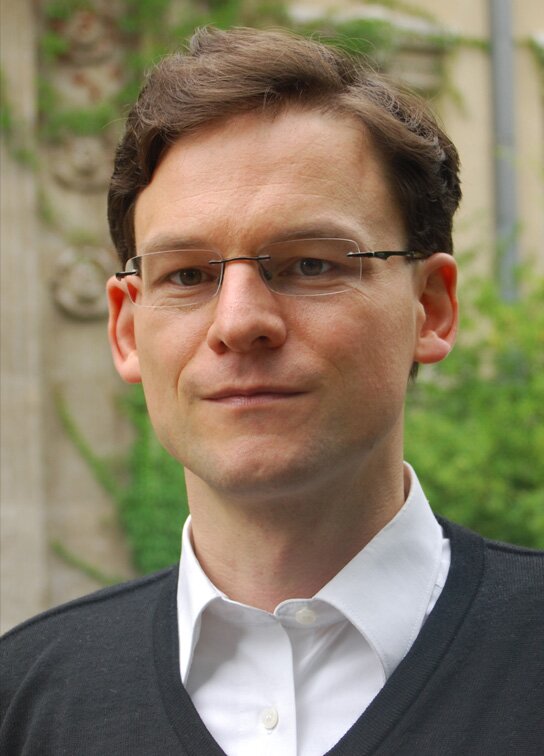
American Friends of the Alexander von Humboldt Foundation awarded a 2012 William M. Calder III Fellowship for Classical Studies to Dr. Jan Felix Gaertner.
Jan Felix Gaertner studied Latin, Greek, and French in Bonn (1996-1998) and in Oxford (Master of Studies, June 1999), where he also recieved the degree of Doctor of Philosophy (May 2002). After a nine-month research stay at the Thesaurus Linguae Latinae in Munich and one year at the University of Fribourg (Switzerland), he was appointed a post-doctoral assistant at the University of Leipzig (2003–2010). He held interim-professorships at the Universities of Heidelberg and Bamberg from October 2010 to February 2012. Since March 2012, Gaertner has been working as a Feodor-Lynen research scholar at Harvard University, hosted by Professor Kathleen M. Coleman in the Department of the Classics.
In his research, Gaertner combines philological analysis with literary and historical interpretation. Apart from several articles he published a commentary on Ovid’s Epistulae ex Ponto, book 1 (Oxford 2005), Gaertner edited a collective volume on Writing Exile: The Discourse of Displacement in Greco-Roman Antiquity and Beyond(Leiden/Boston 2007), and co-authored a monograph on Caesar and the Bellum Alexandrinum: An Analysis of Style, Narrative Technique, and the Reception of Greek Historiography (Göttingen 2013). During his time at Harvard, Gaertner will work on two major projects. On the one hand, he will continue his research on the Roman Civil War and its literary representation by writing a commentary on the Bellum Alexandrinum; on the other, he is preparing the publication of his Habilitationsschrift (post-doctoral thesis; Leipzig 2010/11), in which he analysed the role of law and legal language in Greek and Roman comedy.
Dr. Arata Takeda (2011)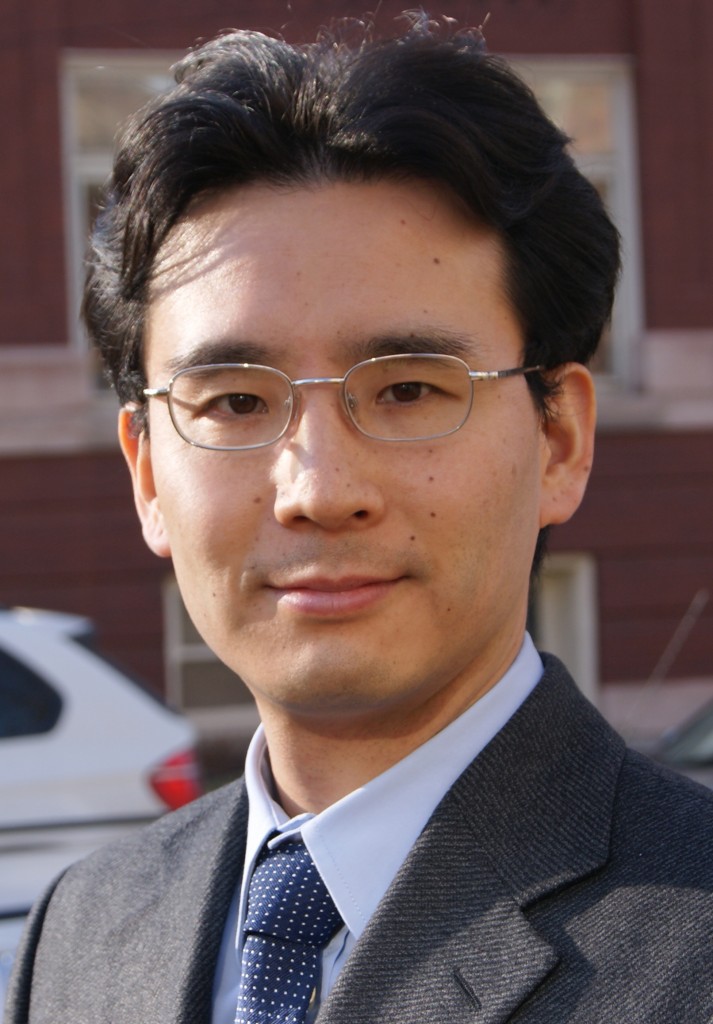
American Friends of the Alexander von Humboldt Foundation awarded the 2011 William M. Calder III Fellowship for Classical Studies to Dr. Arata Takeda.
During his fellowship, Dr. Takeda will be hosted by Professor David E. Wellbery in the Department of Germanic Studies at the University of Chicago. He is preparing extensive work on the social and cultural history of terror, understanding thereby a principle which is at work in a number of areas of human life. The particular focus of his project lies upon the historical transofrmation of terror from an aesthetic method, as expounded in Aristotle’s Poetics, to a political strategy, as applied during the French Revolution. By examining implications of this momentous shift for literature, philosophy, and cultural theory, Takeda seeks to elucidate the interplay between antiquity and modernity that finds its expression in the repulsive and at the same time contagious effect of modern terrorism.
Takeda, studied humanities, German studies, Romance studies, and comparative literature in Tokyo, Tuebingen, and Venice and obtained his PhD from the University of Tuebingen. His dissertation on suicide bombers in Western literature, which challenges the popular view of suicide terrorism as a non-Western phenomenon by discussing Western literary examples beginning with Sophocles’ Ajax, was published in 2010 and caught the attention of German media.
Dr. Takeda has been Lecturer at the University of Tuebingen (2008-2011) and Research Fellow at the International Research Center for Cultural Studies in Vienna (Oct. 2011-Jan. 2012). Besides his academic appointments, he has taught seminars on Human Dignity in cooperation with the Friedrich Naumann Foundation for Liberty and is working with several state education authorities in Baden-Wuerttemberg for improving the quality of intercultural education.
Read about Dr. Takeda’s workshop “Aristotle Revisited” at the University of Chicago
American Friends of the Alexander von Humboldt Foundation awarded the 2010 William M. Calder III Fellowship for Classical Studies to Dr. Nicolas Wiater.
Nicolas Wiater (PhD 2008) studied Greek and Latin language and literature and Byzantine Studies at the universities of Bonn, Frankfurt, Heidelberg, Pisa, and Cambridge. Since his MA on the “Historical Library” of Diodorus Siculus (2004), his major area of interest has been the cultural identity and historical imagination of Greek intellectuals in the Late Hellenistic and Early Roman Imperial Period. From 2001 to 2004 and 2006 to 2008 he has been a lecturer (wissenschaftlicher Mitarbeiter) in Classics at the University of Bonn, Germany. He has published articles on Diodorus Siculus, Dionysius of Halicarnassus, Polybius, and Flavius Josephus, and is author of The Ideology of Classicism. Language, History, and Identity in Dionysius of Halicarnassus, which is forthcoming in deGruyter’s Untersuchungen zur antiken Literatur and Geschichte. With Thomas A. Schmitz he has edited a volume on Greek cultural identity in Augustan Rome, The Struggle for Identity. Greeks and Their Past in the First Century BCE (Stuttgart: Steiner, forthcoming). Another area of interest of his is early Greek poetry and the epic tradition, and his next book will be on violence in the Greek epic, from Homer to Nonnos. During his leave with a Feodor-Lynen post-doctoral Scholarship from the Alexander von Humboldt Foundation, he was working on a commented edition of the letters of Ulricht von Wilamowitz-Moellendorff and Georg Kaibel with Professor William M. Calder III of the University of Illinois, Urbana-Champaign.
Dr. Wolfgang Polleichtner (2008)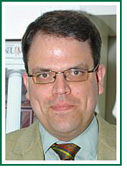
American Friends of the Alexander von Humboldt Foundation awarded the 2008 William M. Calder III Fellowship for Classical Studies to Dr. Wolfgang Polleichtner.
Dr. Polleichtner studied Classics, German, and philosophy at various universities in Ireland, Switzerland, the US, and Germany. He received his MA in 2000, his “1. Staatsexamen” in 2001, his PhD in 2005, and his “2. Staatsexamen” in 2007. His MA thesis dealt with the influence of Plato’s techniques in constructing dialogues on Thomas More. His dissertation investigated the philosophical and literary background of Aeneas’ emotions in Vergil’s Aeneid. Currently, he is working on his Habilitation at the Ruhr-Universität at Bochum, Germany, on Thucydides. Part of that project will be a study on Livy’s debt to this great Athenian historian. To conduct this study, Wolfgang Polleichtner will go to work with Timothy Moore at the University of Texas at Austin. The Calder Fellowship will greatly facilitate and support this cooperation.
American Friends of the Alexander von Humboldt Foundation awarded the 2007 William M. Calder III Fellowship for Classical Studies to Dr. Stefan Schorn.
Dr. Schorn will work with Professor William W. Fortenbaugh (Humboldt Foundation Research Fellow 1976) at Rutgers University. Schorn is preparing a commentary on the fragments of Theophrastus’ treatise On Piety. This work contains significant descriptions of cultural and sacrificial practices in Greece and other areas, including Jewish sacrificial rites, that remain unexplored. Schorn will examine the implications of these texts for philosophy, culture, and religious history. He seeks to resolve numerous textual and exegetical problems in order to investigate the work in the context of peripatetic ethics, in the development of cults, in human/animal relationships in philosophical discourse, and in the framework of popular ideas. The text, to be provided with an exhaustive philological, philosophical and historical commentary, will be published by Brill publishers in the series of commentaries edited by William W. Fortenbaugh on the Theophrastus fragments.
Schorn studied Classical Philology, Ancient History, Greek and Latin Epigraphy and Greek Palaeography at the Universities of Bamberg and Rome. He received an M.A. in 1998 and a Ph.D. in 2002, both from the University of Bamberg. His dissertation on the Hellenistic biographer Satyrus of Callatis was published in 2004. Since 2003, he has been an Assistant Professor at the University of Würzburg.
Schorn has studied in Italy and in England. Scholars have praised his earlier work as careful and thorough, involving high quality reconstruction of fragmentary texts coupled with outstanding commentary. In addition to his personal scholarship, Schorn has served as secretary of the international Plato Society.
Dr. Dirk Rohmann (2005, 2006)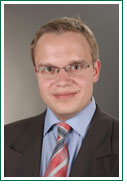
American Friends of the Alexander von Humboldt Foundation awarded the second William M. Calder III Fellowship in July 2005 to Dr. Dirk Rohmann. Dr. Rohmann received a one-year extension of the Calder Fellowship in July 2006.
Dr. Rohmann is conducting research at the University of Colorado, hosted by Professor Noel Lenski of the university’s Department of Classics. Professor Lenski, who won a Humboldt Research Fellowship to Munich in 2002, expressed gratitude to American Friends for the Calder Fellowship, which offsets the contribution that the Humboldt Foundation expects the host university to provide in support of a Feodor Lynen Fellow. The grant frees Dr. Rohmann from other responsibilities and thus facilitates pursuit of his research project.
Dr. Rohmann received his Ph.D. in Ancient History from the Ludwig-Maximilians-University in Munich in 2004 after completing his dissertation on the evaluation of political violence in the literature of the first century AD. While in Colorado, he is researching the conflict between Christianity and pagan religions in the fourth and fifth centuries AD, specifically the polemics of Christian writers against pagan cults. Dr. Rohmann is exploring whether the controversy was motivated primarily by a sense of threat from rival religions or by the desire to convert the pagan elites. This work addresses the intellectual history of the religious conflicts of late Greco-Roman antiquity, a period that shaped both the political and the cultural development of the Christian Middle Ages and, ultimately, the modern world.
American Friends of the Alexander von Humboldt Foundation awarded the first William M. Calder III Fellowship in July 2004 to Dr. Gyburg Radke, a Feodor Lynen Fellow conducting research at Harvard University’s Department of Classics when the award was made.
The selection committee described Dr. Radke as an exceptionally qualified and remarkably productive young scholar: She completed her MA in Greek and Latin Philology in 1999, finished her Ph.D. at the University of Marburg under the supervision of Prof. Dr. Arbogast Schmitt in less than two years, concluded the Habilitation in 2003 and received the venia legendi, the official permission to lecture. Dr. Radke’s publications include three major books and several articles. Both her dissertation and her Habilitation deal with philosophical topics, the theory of numbers in ancient Platonism, and the organization of philosophy classes in the Platonic schools. In her book on Euripides’ Bacchae, Dr. Radke turns to a new area of investigation—modern literary theory and its application to ancient texts, a complex of issues that she continued to pursue at Harvard, where she worked with Professors Albert Henrichs and William Allan.


